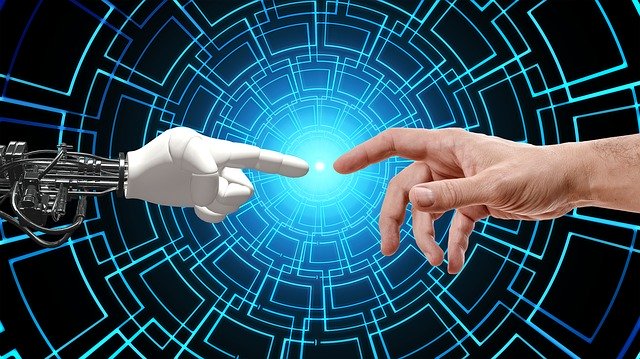It’s the year 2020, the first year of the new decade, the Roaring 20’s of the 21st Century. Around a hundred years ago, multiple breakthroughs in medicine occurred, from the creation of the iron lung to the discovery of penicillin. Now, a hundred years later, medicine continues to innovate and create solutions. With the continuous advancement of medical technology, physicians and patients have a lot in store for them in the coming decade. Here are some of Healthy MD CME’s predictions for medical technology 2020.
Further Integration of A.I. in Medical Care
The usage of A.I. has been discussed in the past, such as in this NCBI article, and patients suffering certain diseases could benefit from an algorithm-based diagnosis. Melanoma diagnosis, for example, might be easier to perform with the focused imaging technology of artificial intelligence. With the growing influence of digital technology in the medical sphere, it is only natural to presume that the growing automation of healthcare calls for the services of intelligent self-automated systems, systems capable of performing tasks that physicians cannot. The usage of algorithms and self-learning programs to reduce the repetitive “box-clicking” of electronic health records (EHRs) could also help physicians perform their own medical tasks efficiently, by removing excess clerical work and letting doctors be doctors. In a way, A.I. in healthcare is less about automated systems supplanting the role of humans in medicine, but more of A.I. systems cooperating with doctors to provide more efficient treatment.
Robotic Advancements
 When discussing A.I., one should also consider the development of robotics, which often goes hand in hand. Advancements such as robotics-assisted surgery have already begun making an impact in the medical world, so further innovations might arise in 2020 and beyond. The motor functions of mechanical limbs, for example, could improve in the new decade, while “smart wheelchairs” can allow disadvantaged patients more mobility without the amputation of their legs. Nanorobotic innovation could also be used to effectively heal bodies without the need for massive incisions characteristic in normal surgery, with specialized nanites repairing internal bleeding, removing tumors, etc.
When discussing A.I., one should also consider the development of robotics, which often goes hand in hand. Advancements such as robotics-assisted surgery have already begun making an impact in the medical world, so further innovations might arise in 2020 and beyond. The motor functions of mechanical limbs, for example, could improve in the new decade, while “smart wheelchairs” can allow disadvantaged patients more mobility without the amputation of their legs. Nanorobotic innovation could also be used to effectively heal bodies without the need for massive incisions characteristic in normal surgery, with specialized nanites repairing internal bleeding, removing tumors, etc.
Biotechnology Innovations
Moving on from the domain of inorganic material, the field of biotechnology should see some improvements in the next decade. Artificially-grown organs are already seeing usage, so it is entirely plausible that biotechnology can achieve other organic advancements, such as accelerated regeneration or the growth of new limbs.
Conclusion

Many of our predictions are based on already existing advancements in medical technology. This may seem derivative, but it is important to build on what’s been achieved in the past. The iron lung does not see much usage in the modern-day, but its inception allowed more effective and sanitary respiratory instruments to be devised. From these bases, better medical care can be provided and issues that still plague humanity can be addressed more effectively.
You can discuss the possibilities of medical technology in the next decade on our 2020 medical conference cruise, along with your fellow physicians and medical practitioners.

